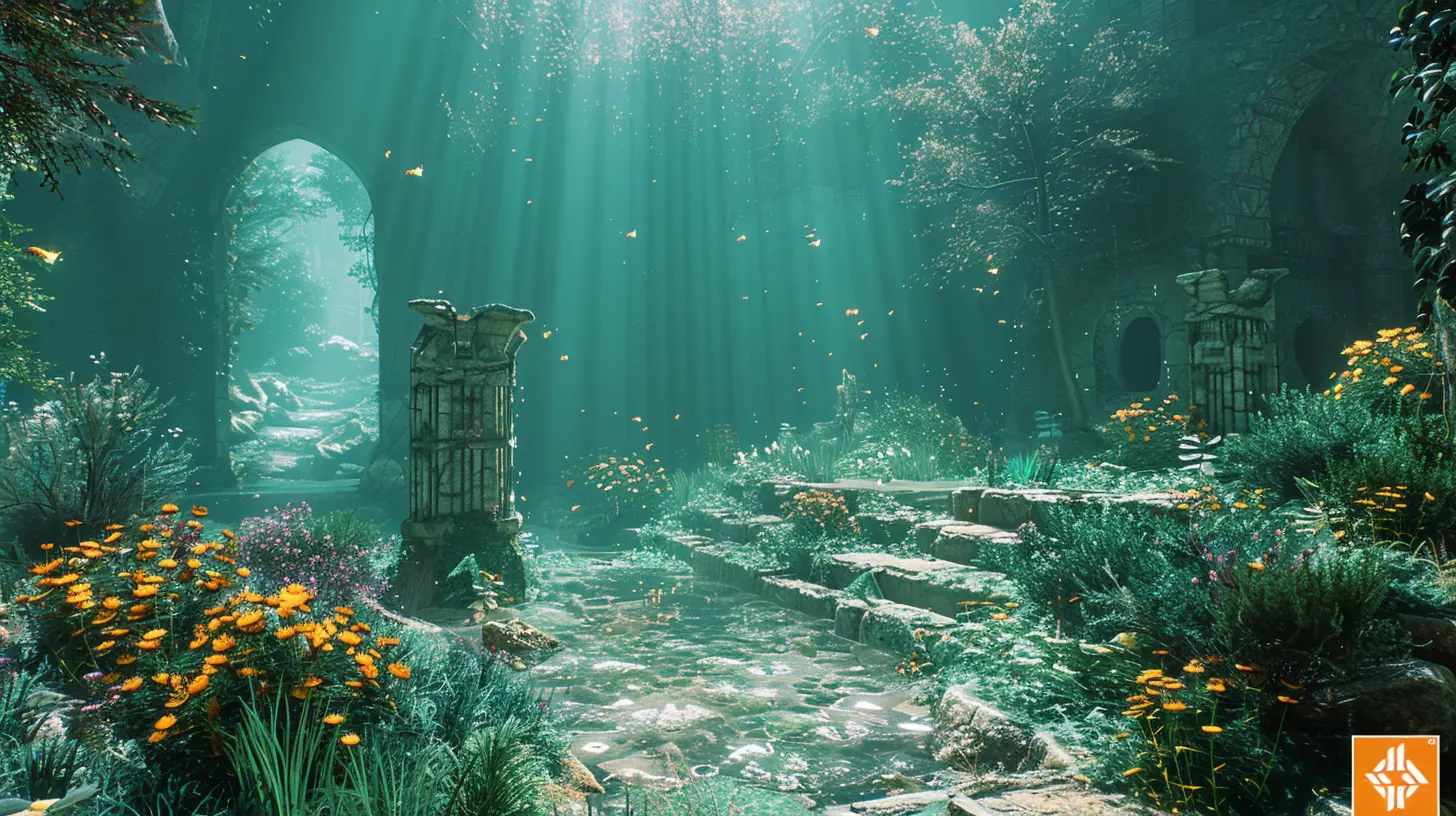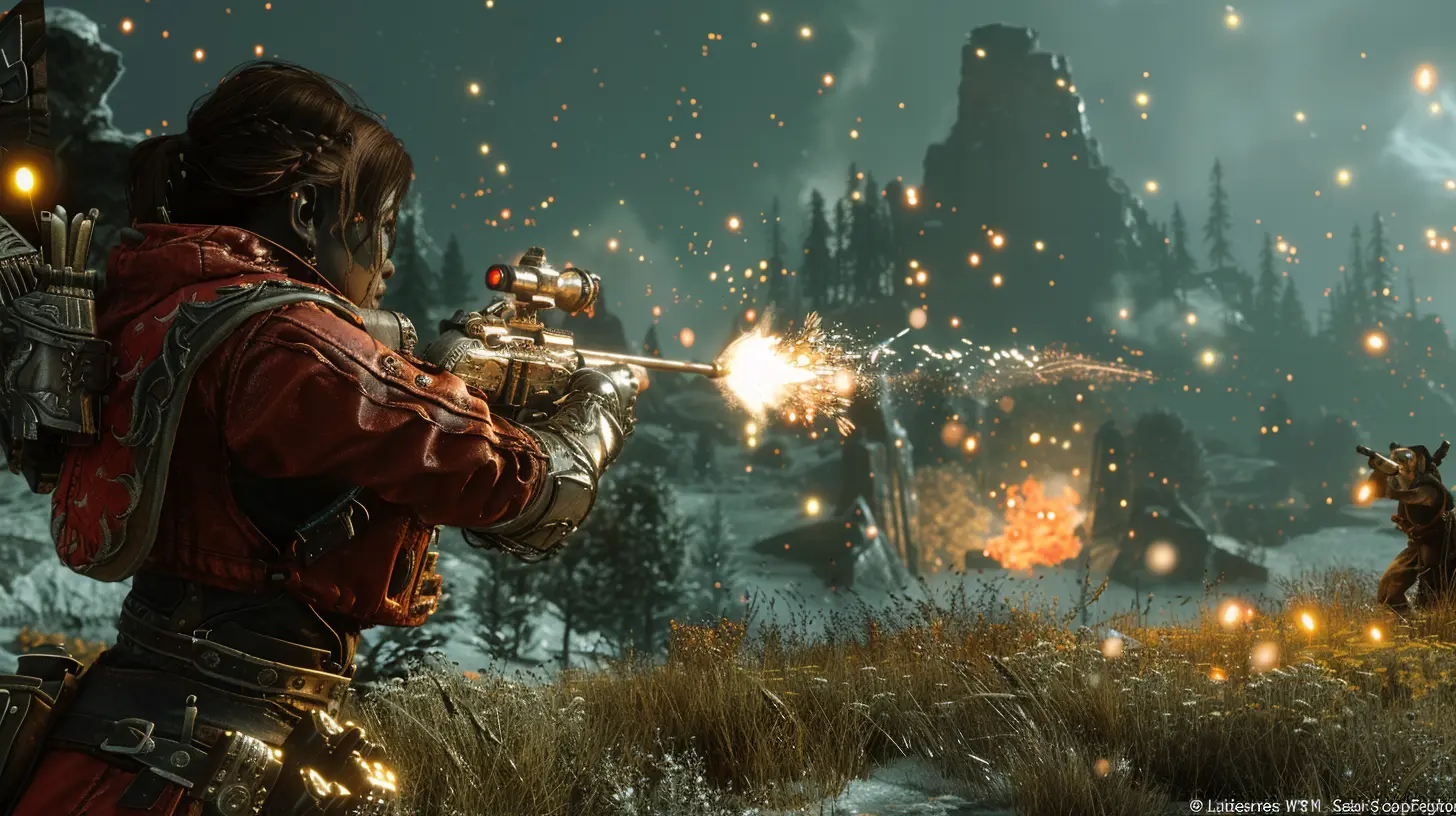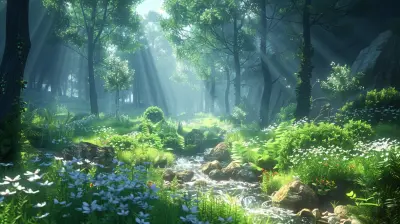Developers Respond to Feedback with Exciting Patch Changes
17 September 2025
Ever felt like game developers just throw updates out without listening to players? Yeah, us too. But lately, there's been a refreshing shift in the gaming world—devs are actually tuning in, taking notes, and making real changes based on what the community wants. That’s right, the feedback loop is stronger than ever, and it’s making games way better, more balanced, and honestly, more fun.
In this article, we’re diving into how developers are stepping up, responding to player feedback, and delivering patch changes that aren’t just exciting—they’re game-changing. Stick around, because whether you’re a casual gamer or a hardcore min-maxer, this one’s for you.
Why Feedback Matters More Than Ever
Remember the days when games felt like one-and-done experiences? You’d buy the cartridge or CD, and whatever bugs or annoyances were in the game just… stayed there. Fast forward to today and things look wildly different. Thanks to digital delivery and social media, games can evolve over time—and that evolution is mostly driven by players.The New Development Cycle Is All About Listening
Game development is no longer a one-way street. It’s now a living, breathing process. Developers are on platforms like Reddit, Discord, Twitter (um, X?), reading forums, and watching YouTube videos to stay up-to-date with what players are saying. They're not just lurking—they're engaging.And when the feedback is loud and clear? That’s when the magic happens.
Patch Notes: The Love Letters We Didn’t Know We Needed
Ever read patch notes and felt like throwing a tiny party? You’re not alone. Those bullet points are like love letters from devs who say, “Hey, we heard you.” From balancing overpowered weapons to fixing that annoying glitch that made you rage quit, patch notes bring transparency and show progress.Balancing the Meta: When Power Needs a Timeout
Let’s say a certain gun in a shooter is wiping the floor too hard. Or maybe a character in a MOBA is straight-up breaking the game. When developers respond with a patch, it shows they’re committed to healthy gameplay.Take Apex Legends, for example. Every patch brings fine-tuning to legends or weapons that stand out too much. Meanwhile, weaker legends often get buffs to help them shine. That kind of responsive balancing keeps things fresh and competitive.
Bug Fixes: The Heroes We Don't Talk About Enough
Sure, balance changes get all the hype. But bug fixes? They’re the unsung heroes of gaming patches. Ever been stuck in a wall? Or had your mission progress disappear? When devs squash those bugs, it’s like finally unclogging that one drain that’s been bugging you for weeks. Instant relief.Quality-of-Life Tweaks: The Cherry on Top
Sometimes it’s not about major changes—it’s the little touches. UI improvements, better inventory management, shorter loading times—these are the quiet upgrades that make the experience smoother and more enjoyable.For example, in games like Warframe or Destiny 2, even small tweaks to navigation or in-game menus can save players a ton of headache. It's like cleaning your room but for your HUD.
Real Examples Where Feedback Drove Change
Alright, it’s story time. Let’s look at how some top developers took feedback and turned it into patch change gold.CD Projekt Red – Cyberpunk 2077’s Redemption Arc
Let’s be real, Cyberpunk 2077 had a rough launch. Bugs galore, performance issues, and glitches that made Night City feel more like Nightmare City. But here’s the twist—CD Projekt Red didn’t just bail. They rolled up their sleeves and got to work.Through multiple patches, they tackled performance issues, refined AI behavior, and added long-requested features like improved police response and better driving physics. Now? The game’s a comeback story—proof that listening pays off.
Riot Games – League of Legends and Tactical Tweaks
League players are loud—and Riot knows it. That’s why they’ve embraced a system of constant updates and community involvement. Every patch is like a balancing act where items, champions, and systems are adjusted based on feedback and in-game data.Got an OP mid-lane champ? Nerfed. Support items feeling clunky? Reworked. Riot also runs PBE (Public Beta Environment) servers where players test updates and share feedback before content goes live. Talk about open dialogue.
No Man’s Sky – From Disaster to Darling
When No Man’s Sky launched in 2016, players felt the sting of broken promises. But instead of fading into obscurity, Hello Games stayed quiet, worked their butts off, and delivered patch after patch. They didn’t just fix bugs—they added new content, multiplayer, and overhauled core systems.Seven years later, it’s a beloved game with a loyal fanbase. That’s the power of not just hearing, but truly listening.
The Role of the Community in Shaping the Game
It’s easy to forget, but gamers have more power than ever. When players organize, speak up, and offer constructive criticism, devs usually respond. Whether it’s during beta tests, early access, or post-launch patches, community voices hold serious weight.Feedback Channels that Actually Work
Wondering how to get your voice heard? Here’s where developers are paying attention:- Surveys: In-game or email surveys often guide updates.
- Forums: Official boards and subreddits are dev goldmines.
- Discord servers: Many games have dedicated servers with direct lines to community managers.
- Steam Reviews: Yep, those thumb-ups (and downs) often echo in dev meetings.
It’s not just about screaming into the void anymore. Thoughtful feedback equals real impact.
Risks and Challenges of Reactive Development
Of course, there’s a flipside. Not all feedback is good feedback. Sometimes developers face the tough task of separating signal from noise.The “People Pleasing” Pitfall
Trying to satisfy everyone can backfire. If devs patch a game too often or cater too heavily to vocal minorities, they risk alienating their broader audience. Balance is everything—both in-game and in development.The Dangers of Over-Nerfing
One change too far can kill the fun. Just ask any Destiny player who's watched their favorite exotic gun get nerfed into oblivion. It’s a tightrope walk: fix the problem without breaking what works.What Makes a Good Patch Note Anyway?
Believe it or not, there’s an art to patch notes. The best ones don’t just list changes—they give context. They’re like the developer’s diary, offering a peek inside their thought process.Great patch notes typically:
- Explain the “why” behind each change
- Use clear, friendly language (skip the jargon)
- Highlight major fixes and buffs/nerfs
- Celebrate community suggestions that made the cut
Some studios even shout out individual players or threads that inspired certain changes. That’s the good stuff.
Looking Ahead: The Future of Patch Culture
So, where’s all this going? Honestly—it’s only getting better. As tools for data analysis and communication improve, developers will be able to react faster and more precisely. Games will become more like ongoing conversations than static products.We’re seeing more games launch in early access, more developer blogs, more transparency. And hey, as AI and machine learning enter the picture, future patches might even predict what players want—before we even say it out loud. Wild stuff.
Final Thoughts
We’ve come a long way from the days of silent updates and one-way communication. Today’s developers are more plugged in than ever, treating patches not as chores, but as conversations—with us, the players.So next time you see patch notes for your favorite game, maybe don’t just skim ‘em. Dig in, see what’s changed, and know that your feedback might’ve played a role. Because when devs listen, and players speak up, games don’t just improve—they evolve.
And hey, isn’t that the kind of relationship we all want?
all images in this post were generated using AI tools
Category:
Updates And PatchesAuthor:

Avril McDowney
Discussion
rate this article
1 comments
Stephanie Hardy
Great to see developers actively listening to player feedback! The new patch changes sound promising and show a commitment to enhancing the gaming experience. It's refreshing when developers prioritize community input, ensuring the game evolves in a way that resonates with players. Excited to see how these updates influence gameplay!
September 20, 2025 at 2:49 AM

Avril McDowney
Thank you! We’re thrilled to prioritize player feedback and are just as excited to see how these changes enhance your gaming experience. Stay tuned!


